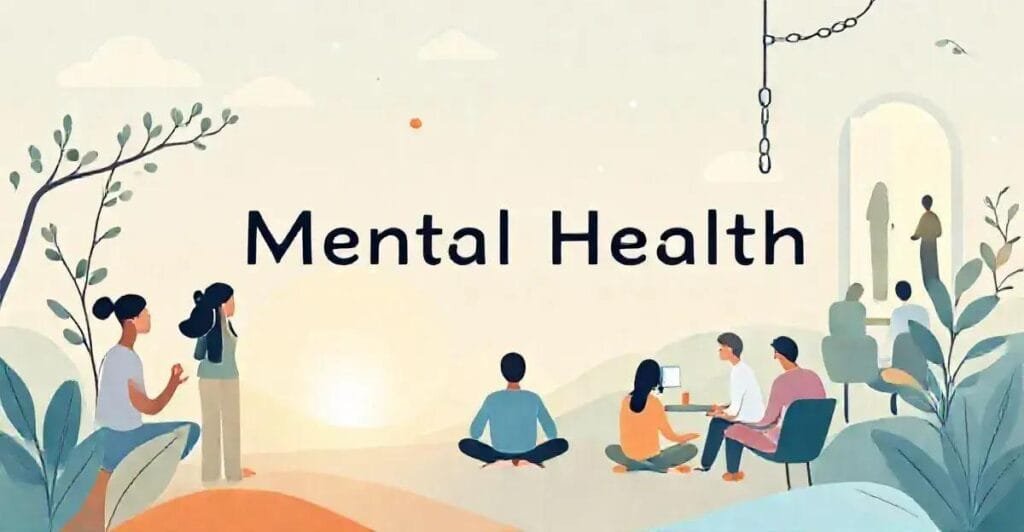Mental health is a vital aspect of our overall well-being, yet it’s often overlooked and stigmatized.
In today’s fast-paced world, it’s easy to neglect our mental health, but the consequences can be severe.
By understanding the importance of mental health and taking proactive steps to prioritize it, you can unlock a happier, healthier you.
In this post, we’ll explore the key aspects of mental health and provide practical tips for maintaining a healthy mind.
Understanding Mental Health
Mental health is a complex and multifaceted aspect of our overall well-being, encompassing our emotional, psychological, and social aspects.
It’s a dynamic state that can change over time, influenced by our experiences, relationships, and environments.
Understanding mental health involves recognizing the interplay between these factors and how they impact our thoughts, feelings, and behaviors.
By acknowledging the importance of mental health and its impact on our daily lives, we can foster a culture of openness, acceptance, and support, ultimately promoting overall well-being and life satisfaction.
The Stigma Surrounding Mental Health

The stigma surrounding mental health is a pervasive and pernicious issue, perpetuating silence, shame, and social isolation.
For many, the fear of being judged, labeled, or ostracized prevents them from seeking help, exacerbating the problem.
This stigma is often fueled by misconceptions and lack of understanding, perpetuating harmful stereotypes and stigma.
It’s crucial to break down these barriers by promoting awareness, education, and empathy, ultimately creating a culture of openness and acceptance where individuals feel comfortable seeking help and support.
Recognizing the Signs of Mental Health Issues
Mental health issues often present with subtle signs, making them difficult to recognize.
Common warning signs include changes in mood, appetite, or sleep patterns, as well as difficulty concentrating or making decisions.
It’s essential to be aware of these subtle cues and take proactive steps to address them before they escalate.
By fostering open communication and encouraging individuals to speak up, we can create a culture that supports mental wellness and promotes early intervention.
Mental Health and Relationships

Mental health and relationships are intimately connected, with our relationships having a profound impact on our mental well-being.
Positive relationships can provide a sense of belonging, support, and joy, while negative relationships can lead to feelings of isolation, anxiety, and depression.
It’s essential to nurture healthy relationships and recognize the signs of unhealthy ones, taking proactive steps to maintain emotional balance and overall well-being.
Mental Health in the Workplace
Mental health in the workplace is a critical aspect of overall well-being, with the work environment having a significant impact on our mental health.
A positive work environment can promote job satisfaction, reduce stress, and boost morale, while a negative environment can lead to burnout, anxiety, and depression.
It’s essential for employers to prioritize mental health by providing resources, support, and a healthy work-life balance, ultimately creating a culture that values and promotes employee well-being.
Conclusion: Prioritizing Your Mental Health

Prioritizing your mental health is a crucial step towards achieving overall well-being. By acknowledging the importance of mental health and taking proactive steps to maintain it, you can reduce the risk of mental health issues and improve your overall quality of life.
Remember to prioritize self-care, seek support when needed, and be patient with yourself as you navigate the journey to better mental health.
FAQ: Frequently Asked Questions about Mental Health
What are the signs of mental health issues?
Common signs of mental health issues include changes in mood, appetite, or sleep patterns, as well as difficulty concentrating or making decisions.
How can I prioritize my mental health?
Prioritizing your mental health involves acknowledging its importance, taking proactive steps to maintain it, and seeking support when needed.
What role do relationships play in mental health?
Positive relationships can promote mental well-being, while negative relationships can lead to mental health issues.
How does the workplace impact mental health?
A positive work environment can promote mental health, while a negative environment can lead to burnout and other mental health issues.
What are some tips for maintaining good mental health?
Some tips for maintaining good mental health include practicing self-care, seeking support when needed, and being patient with oneself during challenging times.


